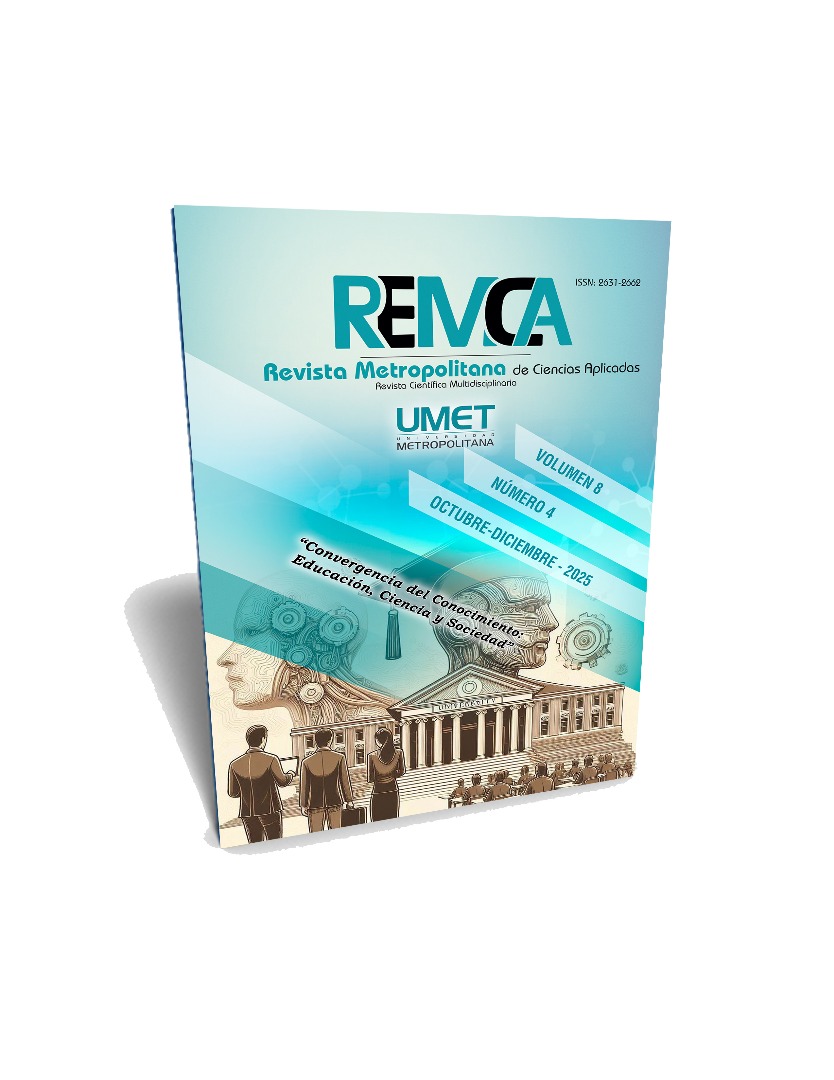Legal and sociocultural implications of adult-centrism in the guarantee of children and adolescents' rights in Ecuador
DOI:
https://doi.org/10.62452/h6pd9r81Keywords:
Adultcentrism, child rights, participation, legal cultureAbstract
The persistence of adultcentrism in Ecuador constitutes a structural barrier to the full recognition of the rights of children and adolescents. This hierarchical legal and social framework marginalizes their voices and agency, reducing their role in decisions that directly impact their development and well-being. The lack of effective participation, the devaluation of their opinions, and the limited scope of inclusive public policies result in a continuous violation of their fundamental rights. The findings show that both the normative system and institutional practices perpetuate this bias, undermining the construction of an active child citizenship. Addressing this issue requires legislative reforms, specialized training in rights-based approaches, and real participation mechanisms. A shift toward an inclusive legal culture is essential—one that acknowledges children as full subjects of rights, not merely as recipients of adult protection.
Downloads
References
Alpízar, L., & Bernal, M. (2003). La construcción social de las juventudes. Última década, 11(19), 105-123. https://www.scielo.cl/scielo.php?pid=S0718-22362003000200008&script=sci_arttext&tlng=en
Bendezú Aquino, G., & Rodríguez Sampertegui, Y. (2020). Experiencias de niñxs y adolescentes trabajadorxs organizadxs: participación protagónica y valoración crítica del trabajo. En S. Morales y G. Magistris (Comps.), Niñez en movimiento. Del adultocentrismo a la emancipación (pp. 216-238). Editorial Chirimbote.
Bourdieu, P. (1990). La juventud no es más que una palabra. En Sociología y Cultura. Editorial Grijalbo México.
Duarte, K. (1994). Juventud popular. El rollo entre ser lo que queremos y ser lo que nos imponen. Lom Ediciones.
Fondo de las Naciones Unidas para la Infancia. (2013). Superando el adultocentrismo. Cuadernillo cuatro. UNICEF. https://www.imageneseducativas.com/wp-content/uploads/2019/02/Superando-el-Adultocentrismo.pdf
Fuentes-Águila, M. R., Díaz-de Perales, A. V., Brito-Febles, O. P., Sarango-Aguirre, H., Castillo, F. J., & Ramírez-de Castillo, A. (2024). Perspectivas de la prevención como estrategia del control social en Ecuador. Editorial UMET.
Kallio, K. P., Wood, B. E., & Häkli, J. (2020). Lived citizenship: Conceptualising an emerging field. Citizenship Studies, 24(6), 713–729. https://doi.org/10.1080/13621025.2020.1739227
Kropff, L. (2010). Apuntes conceptuales para una antropología de la edad. Avá, (16), 1-1. https://www.scielo.org.ar/pdf/ava/n16/n16a09.pdf
Medina-Peña, R., & Torres-Espinoza, J. J. (Coord.) (2024). El neoconstitucionalismo en la protección de los nuevos derechos. Sophia Editions.
Morales, S., & Magistris, G. (2019). El co-protagonismo como nuevo paradigma de infancia: Hacia un horizonte emancipatorio en las relaciones intergeneracionales/Co-protagonism as a new childhood paradigm. Towards an emancipated horizon of intra-generational relationships. Kairos, 23(44), 35-55. https://revistakairos.org/el-co-protagonismo-como-nuevo-paradigma-de-infancia-hacia-un-horizonte-emancipatorio-en-las-relaciones-intergeneracionales/
Moscoso, M. (2009). La mirada ausente: Antropología e infancia. Aportes Andinos, 24, 1-10. https://revistas.uasb.edu.ec/index.php/aa/article/view/3339/2996
Salas, F. (2021). Reseña del libro “Niñez en movimiento. Del adultocentrismo a la emancipación”. Argonautas. Revista de Educación y Ciencias Sociales, 11(16), 160-169. https://dialnet.unirioja.es/descarga/articulo/8883532.pdf
Vásquez, J. (2013). Adultocentrismo y discurso periodístico. Una representación de las personas jóvenes en la prensa de Costa Rica. Chasqui. Revista Latinoamericana de Comunicación, (123), 91-97. https://www.redalyc.org/pdf/160/16057407014.pdf
Downloads
Published
Issue
Section
License
Copyright (c) 2025 Diego Francisco Granja-Zurita, Matías Josué Chicaiza-Flores, María Cristina Espín-Meléndez, Karen Stefanía Carrera-Espín (Autor/a)

This work is licensed under a Creative Commons Attribution-NonCommercial-ShareAlike 4.0 International License.
Authors who publish in Revista Metropolitana de Ciencias Aplicadas (REMCA), agree to the following terms:
1. Copyright
Authors retain unrestricted copyright to their work. Authors grant the journal the right of first publication. To this end, they assign the journal non-exclusive exploitation rights (reproduction, distribution, public communication, and transformation). Authors may enter into additional agreements for the non-exclusive distribution of the version of the work published in the journal, provided that acknowledgment of its initial publication in this journal is given.
© The authors.
2. License
The articles are published in the journal under the Creative Commons Attribution-NonCommercial-ShareAlike 4.0 International License (CC BY-NC-SA 4.0). The terms can be found at: https://creativecommons.org/licenses/by-nc-sa/4.0/deed.en
This license allows:
- Sharing: Copying and redistributing the material in any medium or format.
- Adapting: Remixing, transforming, and building upon the material.
Under the following terms:
- Attribution: You must give appropriate credit, provide a link to the license, and indicate if any changes were made. You may do this in any reasonable manner, but not in any way that suggests the licensor endorses or sponsors your use.
- NonCommercial: You may not use the material for commercial purposes.
- ShareAlike: If you remix, transform, or build upon the material, you must distribute your creation under the same license as the original work.
There are no additional restrictions. You may not apply legal terms or technological measures that legally restrict others from doing anything the license permits.




